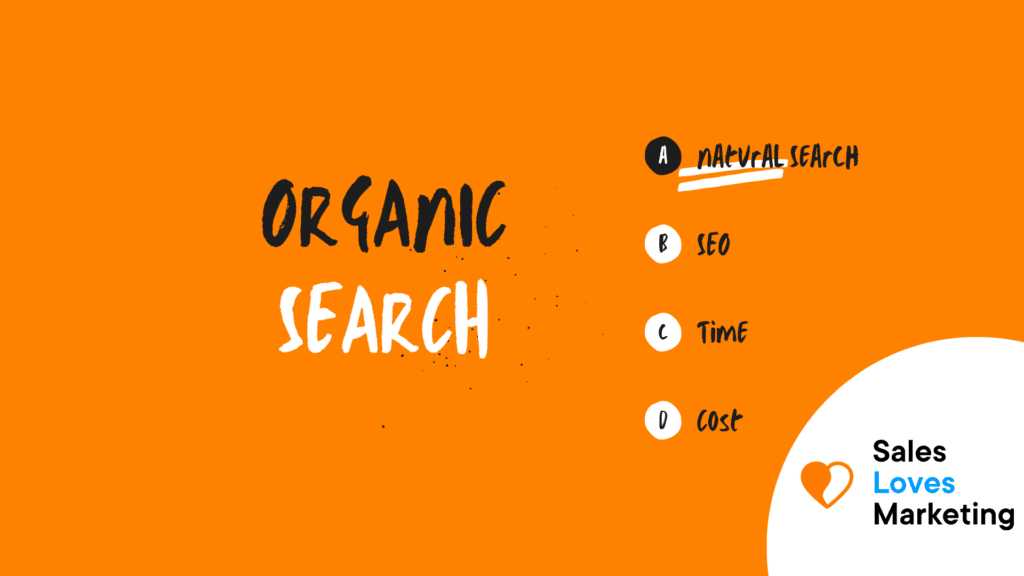What Is An Organic search? (Natural Search)
These are the unpaid results displayed on a search engine results page after placing a query; most of the time, they are created based on search engine optimization (SEO) factors, including backlinks, domain authority, and relevance.
Why Is Organic Search Important?
Getting organic traffic is very profitable. In this traffic are the people who want your services and products. Keywords are used to locate a business that is related to a brand, product, industry, or service; this means that users have an interest in an organization.
Organic search marketing leads to creating organic traffic to a website. Leads and conversions for your business can be obtained or converted through this traffic. The business can grow both online and offline thanks to organic traffic.
When a site is improved enough to get to the first page of some search results, the business builds credibility around it. People are more likely to choose that company because of the belief that it matches their search query.
Building existence in search results leads to more credible customers and potential buyers for the company.
Related Reading: Google Analytics G4 Property
Is There A Difference Between Paid Search And Organic Search?
Investing in both types of search helps you gain more visibility in search results and have a greater presence in more interested customers.
Here’s how they differ from one another.
The cost
You do not pay for ranking in organic search results.
It is free for a business to appear in organic search results or for someone to enter a website through links in organic search results.
In the case of paid search, you have to pay to be shown in certain search results. Every time a user clicks on a company ad, the company has to pay a stipulated amount. In short, a payment is made for a website to be advertised in search results, and people can reach this website or company.
Location
Paid search generates pay-per-click (PPC) ads at the top of search results. They are shown in listings with the word “ad” to indicate that they are paid content.
These paid listings appear at the top and bottom of the organic listings. They never appear in the middle of organic search lists.
Time
Organic search takes time to see results. It takes time to run a successful campaign, implement it, and get satisfactory results. For positive results to be seen, it can take up to months.
With paid search, the results are immediately shown. You can know when people see a paid ad and interact with it. Based on these results, there is the possibility of improving the ad to improve the results almost immediately.
Control over the pages
In search and organic search engine marketing, you have less control over the pages displayed in search results.
Although you can mix keywords on a site and maximize pages to try and rank particular phrases, the search engine decides and indicates where the page is displayed. You can try to swap words with search engines to tell them which pages match multiple searches, but the search engine has the last word.
With pay-per-click, there is more control over which sites to take tentative customers. When a paid ad is created, you have decision-making power over the final page you want your users to see. This way, you can manage where your audience is going and what you want them to see.
One of the main differences between search types is the destination. Organic search leads to pages that are related to keywords on a website; on the other hand, paid search guides the public to a predefined landing page.
Related Reading; Best SEMrush reports
Best Practices For Organic Search Traffic
Some strategies used for organic SEO support the use of backlinking opportunities, keywords, and keyword rankings, building links to increase link popularity, and creating rich content for people who read. Sometimes people change the keyword phrases they use to decide to make a purchase. It is at this point in particular that you should ensure that you do better keyword research in order to understand what you are looking for:
Study your AdWords data. You can use the keyword planning tool and acquire Google opinions that are based on the keywords you already have. You can work on identifying trends that the SEO team is not aware of since AdWords is often trying and testing new keyword phrases.
Through the use of tools like SEMRush or Moz, you can recognize words for which the competition is rated and what works for them. If any competitors may be gaining traction through organic search, there is the possibility of reverse engineering.
